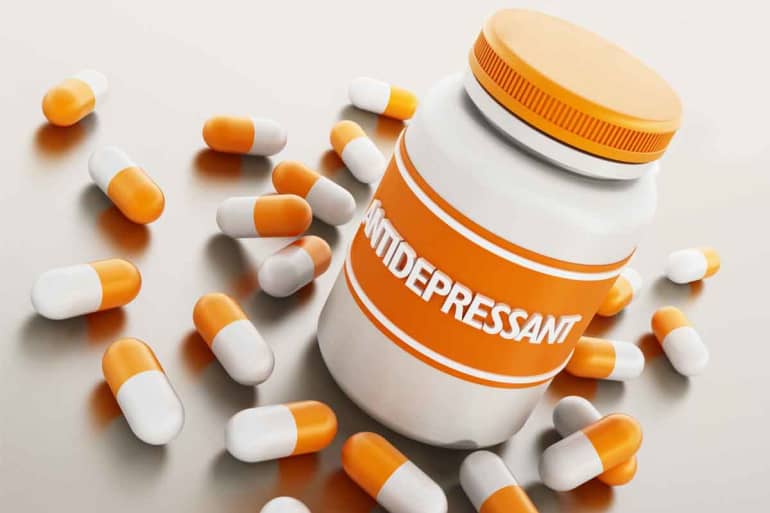As rates of people using antidepressant drugs to treat depression continue climbing, so do disagreements surrounding their use. Roughly 1 in 10 adults aged 18 and older took at least one antidepressant in the past 30 days, according to research from the Centers for Disease Control and Prevention (CDC).
Researchers also noticed the rates of use increased as people grew older.
The CDC saw the following percentages of people who used some type of antidepressant in the past month:
- 8.8 percent of 18 to 44-year-olds
- 17.5 percent of 45 to 64-year-olds
- 18.99 percent of people 65 and older
This study revealed a drastic increase in use compared to studies from previous decades. Thirty years ago, fewer than 1 in 50 people used an antidepressant in the past month. They’re still a newer form of treatment when you consider the entire history of medicine. Are doctors prescribing antidepressant drugs quicker than research can gather data on the effects?
Another concern is whether taking antidepressant drugs is a form of substance abuse. Do the rising rates of addicts and alcoholics reflect the increasing numbers of people with depression on antidepressants? Do people using these medications count as substance abusers? Continue reading to learn more.
Types of Antidepressant Drugs
Asking whether taking antidepressant drugs is a form of substance abuse is too vague a question. The term antidepressant covers a wide variety of medications used for treating various forms of depression. There were a few early types of antidepressants introduced in the mid-1900s that no longer see much use today.

Currently, doctors prescribe three main types of antidepressant drugs:
- Selective Serotonin Reuptake Inhibitors (SSRIs)
- Serotonin and Norepinephrine Reuptake Inhibitors (SNRIs)
- Atypical antidepressants
The medications work by interacting with different neurotransmitters in your brain responsible for dopamine, serotonin, and norepinephrine levels. People with clinical depression tend to have naturally lower levels of these chemicals. The use of antidepressants helps regulate their neurotransmitter levels and keep them closer to a “normal” range.
Each of the classes of antidepressants have a few common brand name medications you may be familiar with:
- SSRIs
- Prozac
- Paxil
- Celexa
- Zoloft
- Lexapro
- SNRIs
- Cymbalta
- Effexor
- Pristiq
- Atypical antidepressants
- Wellbutrin
- Desyrel
- Remeron
The Difference Between Dependence and Addiction
Can you truly develop an addiction to antidepressant drugs, though? This raises the question of the difference between dependence and addiction. They might sound like the same thing if you aren’t familiar with substance abuse and addiction. There are a few notable differences between drug dependence and drug addiction.
Drug Dependence
If you regularly use a substance for an extended period of time your body becomes used to the constant supply. Your body develops a physical dependence on the substance. You may experience a negative reaction when you stop using that substance, depending on what it is and how long you used it.
The two components of dependence are tolerance and withdrawal. Tolerance means needing more of a drug to achieve the same result. Your body gets used to your usual supply and needs more after a while to get the same results as before. Withdrawal refers to the physical reactions you experience when you stop using that substance.
These two factors make dependence look somewhat similar to addiction. Anyone can develop substance dependence if they use enough of a drug for long enough, though. Since antidepressant drugs directly affect the way your brain responds to the world around you, dependence is a given.
If you’re on antidepressant drugs, you’re familiar with the warning to never quit using them suddenly. You should always taper off of your antidepressants to avoid some extremely negative results. Just because you’re dependent on your medication, though, does not mean you’re addicted.
Drug Addiction
People addicted to drugs experience the same components of tolerance and withdrawal to the substances they use. But there is one major difference between dependence and addiction: compulsion. Compulsion separates addicts from those who are only physically dependent on their medication.

People who struggle with substance abuse continue compulsively using drugs no matter what the consequences may be. More often than not there are very few consequences when someone first starts drinking or using drugs. If they are an addict or alcoholic, though, after a while their problems start to pile up.
Rather than facing the results of their drinking or using head-on, though, they continue drinking and using to cover up the shame or responsibility of getting out of it. After a while, their problems become incredibly difficult to solve and they find they have exhausted many of their options. Friends and family members become frustrated with bailing out their loved ones.
Very few drugs provide additional effects, or “high,” when you overtake them. The desire to compulsively take more antidepressants hardly exists. Nearly all SSRIs and SNRIs simply function to provide balanced neurotransmitter levels in the brain. People on antidepressants are undeniably dependent on their medication but are far from addicted.
Finding Substance Abuse Treatment
Although people on antidepressant drugs are almost never addicted to them, dual diagnosis is something to consider. Dual diagnosis refers to someone with a mental illness, such as depression, who also struggles with substance abuse or addiction. Their drug abuse commonly results from an attempt to self-medicate rather than seek proper treatment.
People with dual diagnoses benefit from a treatment center that specializes in treating dual diagnosis cases. Hawaii Island Recovery provides this type of treatment, focusing first on the surface-level addiction and then digging into the deeper roots of the mental illness.
 Hawaii Island Recovery
Hawaii Island Recovery 









